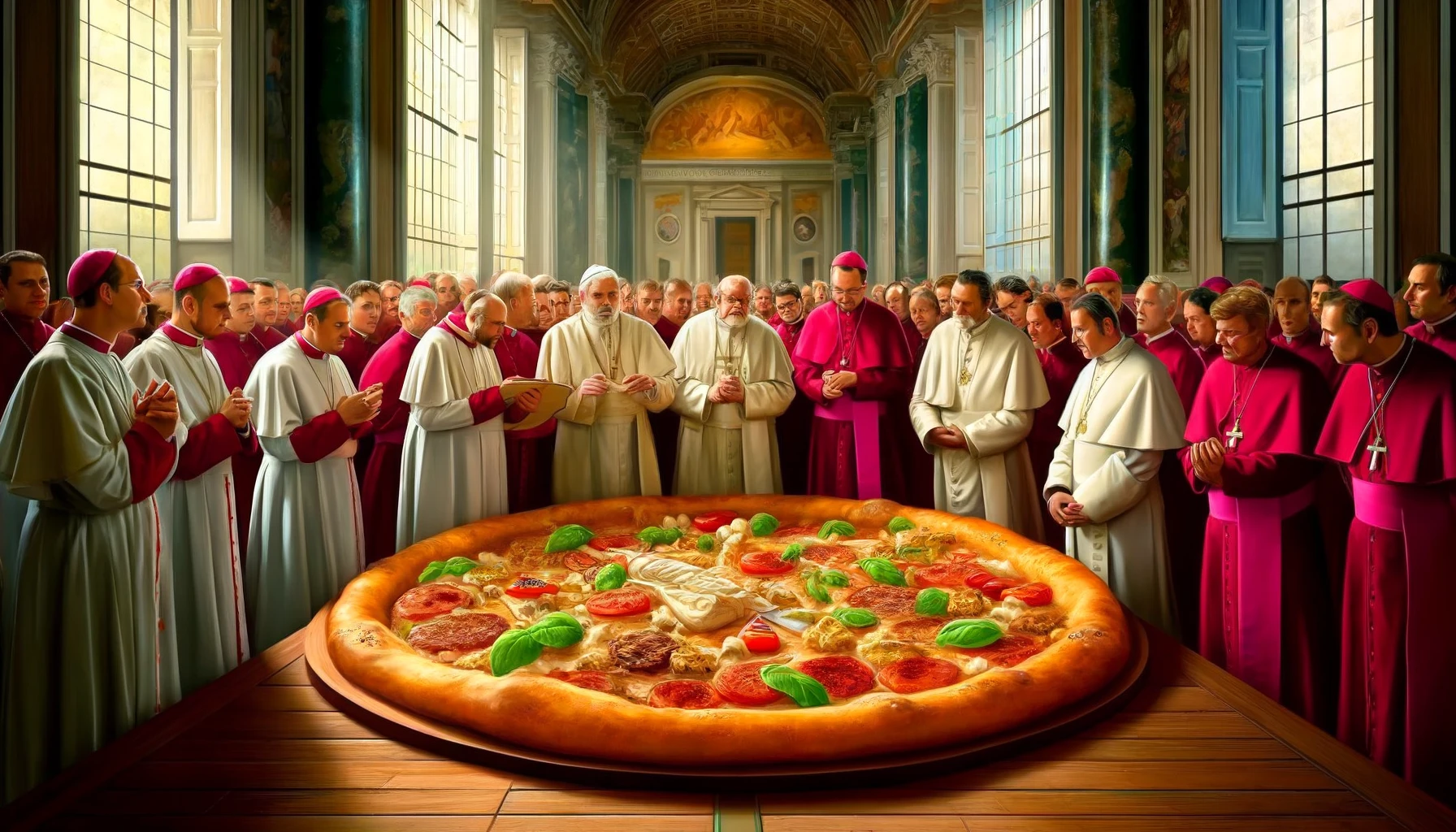The aroma of simmering marinara and rising dough fills the hallowed halls of the Vatican of Pizza, as a weighty question hangs in the air: Could Cheesus Crust, the legendary founder of Crustianity, be officially recognized as a saint? This unprecedented move would elevate pizza’s patron from a revered figure to a full-fledged member of the heavenly host. “It’s about time Cheesus gets the recognition he deserves,” declares Sister Olive, an ardent advocate for canonization. “He spread joy, sustenance, and – let’s be honest – deliciousness to the masses. That’s more than most saints can claim.”
However, the Saucy See can’t bestow sainthood lightly. A rigorous process must be followed. Crustian scholars meticulously compile testimonials, debating whether a perfectly executed pizza flip qualifies as divine intervention or if rescuing a burnt pizza from the oven rises to the level of a miracle. Meanwhile, theologians pore over ancient pizza boxes, deciphering Cheesus’ wisdom and scrutinizing whether “extra cheese can heal all wounds” carries the same gravitas as traditional scripture. All the while, any unexplained pizza-shaped cloud formations or weeping tomato sauce icons are investigated with cautious optimism.
News of the potential canonization has split public opinion. Crustians erupt in cheers, envisioning a world where pepperoni halo pendants become commonplace. Traditional Catholics are perplexed, while food critics ponder the potential impact on restaurant reviews.
The Vatican of Pizza assures the public that the process is being taken seriously. However, leaks suggest intense debates rage even within those holy walls. The Miracle of the Anchovies – did Cheesus truly bless a pizzeria’s supply, or was it just good refrigeration – is hotly contested. The authenticity of ‘The Sacred Roller’ is in question, and theologians grapple with the Great Pineapple Schism: can those who embrace the controversial topping truly be considered for sainthood themselves?
While Cheesus Crust’s ascension to sainthood remains uncertain, one thing is for sure: the debate has ignited a cheesy theological discussion not seen since the Great Toppings Schism. Whether the decision elevates pizza to a new level of spiritual reverence or simply reinforces its status as a source of secular culinary delight remains to be seen.

